
Reverend Father Henry Somah: Case Study
21/05/2019

In July 2017 White Rose Visas were approached by Reverend Father Henry Somah, a Liberian national hoping to come to the UK on a Tier 2 Minister of Religion visa. This immigration route is for individuals who have been offered a role within a faith community.
Henry had been provided with a Certificate of Sponsorship (CoS) from the Society of African Missions, and we fully assisted with preparing and submitting his application. What followed in the next few months was little short of every visa applicant’s worst nightmare.
The Initial Application
Henry provided all the documents and evidence required for this application.
This included his passport, the completed application form, letters from his religious order, his IELTS (English Language Test) results and a supportive letter from us as his immigration advisers.
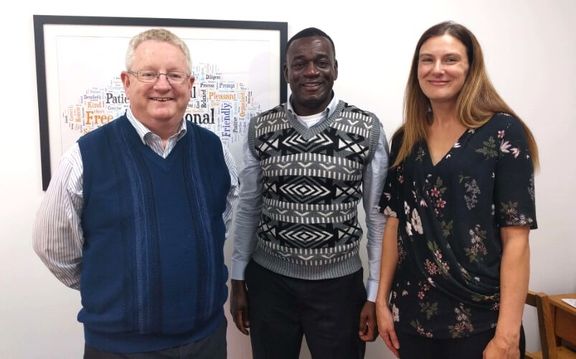
He paid all the appropriate fees and included the CoS from the Society of African Missions (SMA).
This CoS confirmed that they would be sponsoring his entry into the UK, and that they would provide his accommodation and support him in his role as a part of the religious order.
The application was submitted in October 2017, and Henry attended an interview with the Home Office to confirm his lawful intent to come to the UK.
Just over a week after this interview, Henry’s application was refused. The reason provided by the Home Office was that ‘they have seen no evidence that The Society of African Missions is a religious order’.
The SMA had already been granted a licence to sponsor religious workers through the Tier 2 category.
The letter provided in Henry’s application also explained how the SMA are a religious order and the nature of their community, which is known as apostolic and separate from society. Henry also further explained the details of his religious sponsor in his interview.
The Home Office seemingly ignored all of this provided evidence. Once this refusal was received, we quickly prepared an Administrative Review. This is the process of arguing that a decision made by the Home Office was incorrect.
We completed this Administrative Review free of charge because the reason given by the Home Office wasn’t caused by any fault whatsoever on Henry’s behalf. In this review we listed all the above evidence, and provided SMA’s website as publicly available information supporting their status as a religious order.
In November this Administrative Review was successful, and the visa was granted. We were all relieved, but this turned out to be only the beginning of Henry’s problems.
After the Application
There are no UK Visa Application Centres in Liberia, so Henry had to travel to Ghana to complete his application. This meant he needed a Ghanaian visa whilst staying in the country.
Henry was told to submit his passport to the Visa Application Centre (VAC) in Ghana, which he did in the first week of December 2017.
He was told that he’d receive a phone call when the passport was ready to collect, with the 30-day vignette stamp which would allow him entry into the UK.
In January, Henry still hadn’t received a phone call about his passport, so we contacted the Home Office with a further complaint.
Two weeks later we hadn’t received any response, and used the Home Office’s paid phone-line to contact them directly.
They forwarded us an email which they said had been sent before, but that we hadn’t received. This email was addressed to the wrong person, and didn’t include any information specific to Henry’s case.
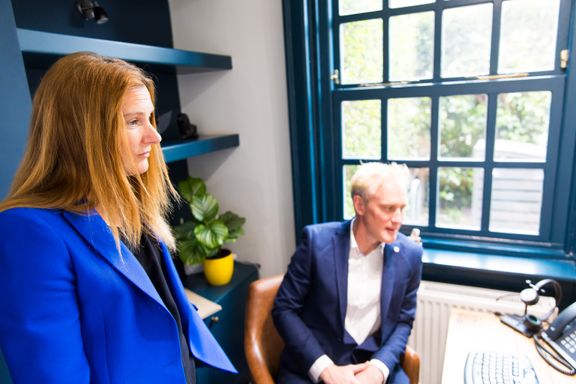
This continued into February, as the Home Office claimed they had escalated the situation to a department manager. Finally, Henry received an email directly. This email stated the following:
‘I apologise if you have been informed that a decision has been made on your application. The assessment of this application has not been straightforward and is subject to extended checks…’
Henry had spent months in Ghana applying for the visa and waiting for his passport to be processed, and was now being told that his application had in fact not been decided at all. This was all wrong information, as we had received and saved the successful decision of his Administrative Review in November.
We received another email from the Home Office two weeks later, again not addressed to Henry but to a different person. This email yet again gave no specific assistance to Henry’s case.
We were then forced to contact our local MP in an attempt to sort out the situation. But by the middle of March Henry had been staying in Ghana for over his permitted visa time. This meant he had overstayed his visa in Ghana, and was both fined for overstaying and forced to return to Liberia.
Henry had to leave the country without his passport, which was apparently still in the VAC in Ghana. This was all because of the Home Office’s continued negligence in handling his case, which he had done everything in his power to prepare properly and within the rules.
We continued to contact the Home Office and our local MP throughout the spring to try and resolve the issue. No information was given to us, as we kept receiving automatic emails and no real updates from the Home Office.
This continued until June 2018 when Henry’s colleague went to the VAC in Ghana and found that his passport had been sitting there since the end of March, with his temporary 30 day visa issued in the passport. Sadly the 30 days had passed, meaning that Henry was therefore not permitted to travel.
Passport, but No Entry
Henry now had his passport, but no legal way to travel into the UK even though his visa had been successfully granted over 6 months prior.
We had no choice but to advise him to submit a Transfer of Conditions (TOC) application. These are necessary when a vignette has expired or a passport has been lost before someone travels to the UK. This meant Henry had to pay for yet another application just to get into the UK.
We continued to contact our local MP during this time, but once they finally received a response from the Home Office, it only stated that Henry’s BRP was ready to collect in Manchester. This was no help whatsoever, since if we hadn’t advised Henry to complete a TOC application, he wouldn’t have been allowed to enter the UK to collect it!
Henry was forced to travel to Ghana once again to submit the TOC application and attend an appointment. Finally, he was granted a new vignette at the end of September 2018, almost a year after he submitted his initial application.
We thought this would be the end of Henry’s troubles, but even though he now had all of his documents and was legally residing in the UK, he realised another issue.
When he received his BRP it stated his visa had only been granted until 30/10/20, which was approximately two years from when he collected the BRP. He had expected the visa to last for three years.

The rules state that the visa is granted from the start date on his Certificate of Sponsorship. This meant he had lost a whole year of his time in the UK, because of problems completely outside of his control.
We informed Henry that we would collect all this information and submit a full complaint to the Home Office, which we sent in November. In the complaint we suggested that the Home Office should pay for Henry’s extension in 2020 and reimburse him for the fees he was forced to pay because of their negligence.
In December 2018, we received a response from the Home Office stating they would be unable to uphold our complaint. At the time of writing Henry has not received any compensation for the year he lost from his visa, or for the extra fees he has been made to pay the Home Office.
Henry’s case shows why it is so vitally important that every visa applicant has access to the appropriate immigration advice. If we had not informed him of the TOC application, which is not a commonly known part of immigration law, it is likely he would have been stuck with a visa but no entry access to the UK.
If you are having any problems making an application, we offer a free initial consultation to ensure you are being treated fairly by the UK’s immigration system.
We were delighted to meet Henry in-person when he came to visit our office. Despite everything that had happened he was happy to finally have his visa, and had brought us gifts as thanks for our support.
Henry is now a valued part of the SMA here in the UK, and we are hopeful that by the time he needs to make an extension application next year, the Home Office will have changed their stance on his complaint.
Related Posts
Can I Study On a UK Skilled Worker Visa?

Find out the rules for studying on a UK skilled worker visa, including any restrictions you need to...
Can I be self-employed on a Tier 2 General / Skilled Worker Visa?

We are frequently asked whether it is possible to be self-employed on a Tier 2 General / Skilled...
White Rose Visas Comes to Malta: October 2nd 2024
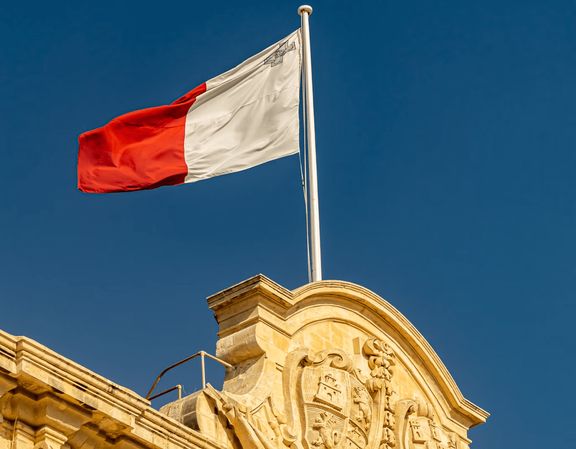
On Wednesday, October 2nd 2024, White Rose Visas will be hosting an event at the Double Tree by...
Our Response to the Far Right Protests
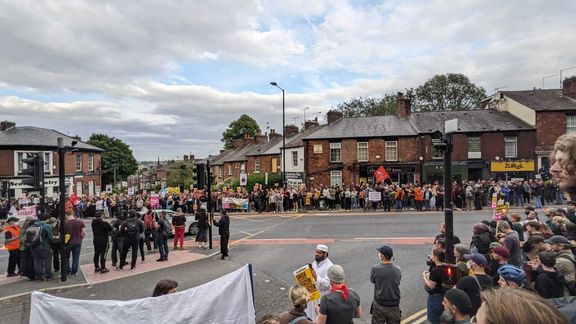
Last night White Rose Visas were targeted by the far right, choosing to use us as a focus...
Physio First and White Rose Visas

White Rose Visas are very pleased to announce a new partnership with Physio First
Does My Family Need a New Visa When I Change Jobs?

We’ve received many questions from our clients and enquirers about the process of changing jobs on a Skilled...
Beware - Scam Alert!

A fraudster is attempting to cheat individuals, by claiming that they are associated with White Rose Visas
Catching up with one of our earliest clients

Kim Day, founder of White Rose Visas, recently had the pleasure of catching up with one of her...
White Rose Visas comes to Victoria Falls

On 20 and 21 October 2022, White Rose Visas will be coming to The Royal Livingstone Hotel, Victoria...
White Rose Visas 10 Year Anniversary
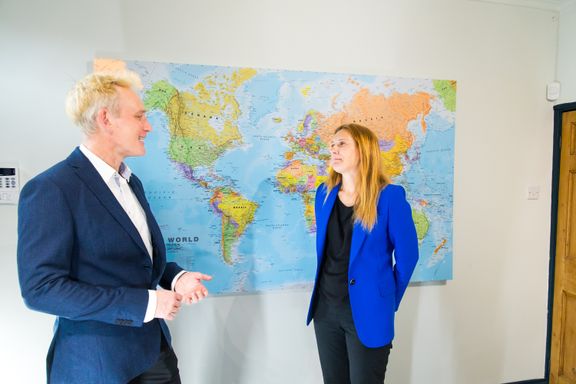
In 2019 White Rose Visas celebrated its 10 year anniversary! The company was founded by Kim & Mark...
Investing in an Existing Business: is Tier 2 an Alternative to Innovator ?

On March 29th 2019 the Home Office closed the Tier 1 Entrepreneur category and replaced it with the...







